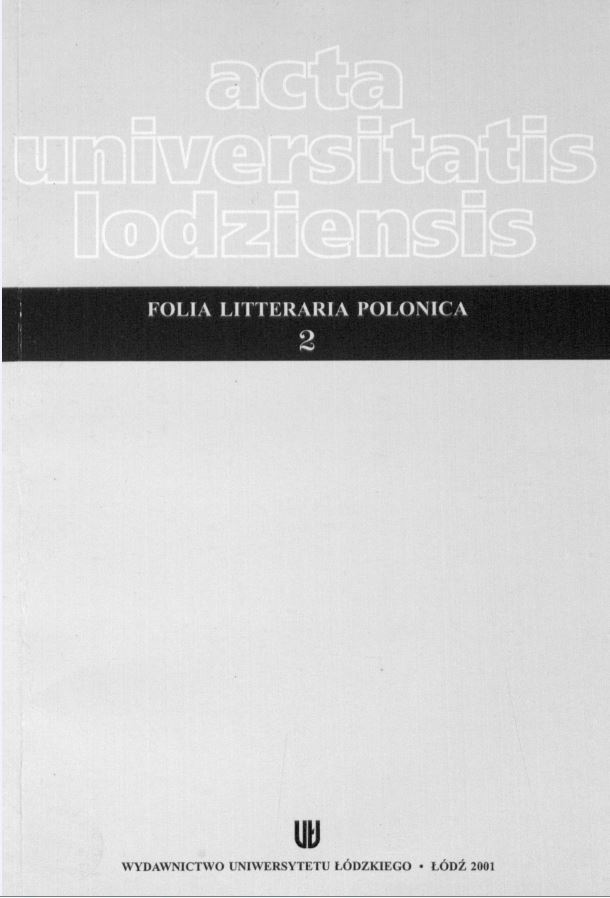"Klarowność przęseł" : Miłosz gnostykiem? Miłosz manichejczykiem?
DOI:
https://doi.org/10.18778/1505-9057.02.06Abstrakt
The article is an attempt to place Czesław Miłosz in the tradition of Gnosticism and Manichaeism, to recall the Nobel Prize winner’s literary fascinations which have especially influenced his poetry, as well as to show a possible way of interpretation of his works. The starting point for further discussion is the question posed by the Rev Józef Sadzik in Wstęp (the Preface) to Ziemia Ulro (The Land of Ulro): “co stało się z kulturą europejską w jej «romantycznym przesileniu»” (What has become of European culture at the time of its «Romantic turning-point»), when, generally speaking, the spiritual and material elements separated?
In the time when western civilization openly turned against its Christian roots, each artist connected with this cultural tradition was made to make choices. At that time Miłosz took to analysing the motif of unde malum (Where does evil come from?) and had a number of lectures on Dostojewski at the University of California.
This led him to the philosophy of Mani, who is widely regarded as the founder of Manichaeism. A volume of poems with the title Hymn o Perle (A Hymn to the Pearl), published by Miłosz in 1982, which, as the poet explains, directly alludes to the apocrypha of Gnostic origin, seems to support this supposition. The next stage consisted in the fusion of the two threads, that is to say, the Manichaean and the Gnostic motifs.
The poet finds elements of Manichaeism and gnosis in works by Emanuel Swedenborg, William Blake, Adam Mickiewicz and his relative Oskar Miłosz. Czesław Miłosz seems to me to be the next link in the chain of the same philosophical and religions movement.
Pobrania
Pobrania
Opublikowane
Jak cytować
Numer
Dział
Licencja

Utwór dostępny jest na licencji Creative Commons Uznanie autorstwa – Użycie niekomercyjne – Bez utworów zależnych 4.0 Międzynarodowe.











